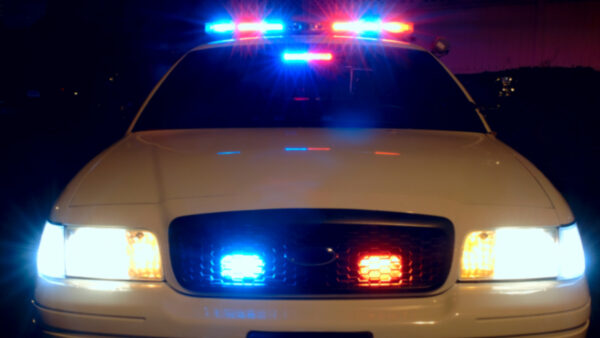A now-retired Black Secret Service Agent sued the United States Park Service after he was twice detained while on duty nearly eight years ago.
Former Special Agent Nathaniel Hicks was awarded $730,000 in damages by a jury in 2021, and now a federal appeals court has upheld the award.
Hicks was detained twice on July 11, 2015, by officers Brian Phillip and Gerald Ferreyra for more than an hour. The former agent was first detained by Ferreyra as he sat in his vehicle before dawn on the shoulder of the Baltimore-Washington Parkway waiting to lead a motorcade to protect the secretary of the Department of Homeland Security.

Ferreyra saw Hicks on the shoulder of the highway seated in his unmarked vehicle and claimed he wanted to perform a “welfare check.” Ferreyra claimed he noticed Hicks’ gun in its holster on the passenger seat and drew his weapon, yelling, “Don’t touch the gun.”
Hicks, who has said he heard a tap on his passenger window and looked up to see a gun pointed at him, unrolled his window while following Ferreyra’s directions and immediately identified himself as a U.S. Secret Service officer. Hicks also showed him his identification. As Ferreyra took Hicks’ gun, Hicks maintained that Ferreyra continued yelling and “telling him to shut the ‘f’ up.”
“Ferreyra continued to appear ‘very agitated to the point of . . . spitting at the mouth while he was shaking profusely with the handgun pointed in [Hicks’s] direction.’ At this point, Officer Ferreyra removed Hicks’s weapon from the car and returned to his patrol vehicle,” read the lawsuit documents.
“I said, ‘Whoa, whoa. I’m a Secret Service special agent,’” Hicks testified in a deposition.
“I felt completely helpless that here I was, an African-American male that was surrounded by all Caucasian officers [Ferreyra is Hispanic],” added Hicks at the civil trial. “I just felt very disgusted at the time and just very upset and scared.”
Even though Ferreyra could easily verify Hicks’ identity and there was no crime committed, he detained him until a Park Police officer could come from Anacostia. Officer Phillips arrived on the scene as Hicks waited and began to question him as to why he had his weapon on the seat and ask if he’d been asleep. Hicks was on the phone with his supervisor explaining the stop.
As Hicks was detained, the motorcade left without him and passed by where he was being detained at around 6:40 a.m. Phillips reportedly “mockingly waved his hand goodbye at the motorcade as it passed.” Once the Park Police Sgt. Wallace arrived and talked to Hicks’ supervisor on the phone, Hicks was released.
Within minutes, Hicks was pulled over again by Phillips, who asked for Hicks’ license and registration. Hicks was still on the phone with his supervisor so he could meet up with the motorcade. Phillips let Hicks go without writing a citation.
Hicks and Ferreyra had met previously. In 2009 Hicks had helped detain the officer before his arrest outside of a bar in Washington, the Washington Post reports. Hicks had been flagged down by a bystander at the scene of a fistfight between Ferreyra and a cab driver, where he was the first law enforcement officer on the scene to intervene in the fracas. Ferreyra later saw his charges stemming from the fight dropped.
The Washington Post noted that evidence of a turf war between local law enforcement agencies was not allowed in the proceedings. Hicks testified that Phillips asked him, “Why are you here in our district? This is the Park Police district,” during the first stop and told him he was “getting mouthy” at the second stop.
Phillips claimed during the civil proceedings that he didn’t recognize Hicks’ vehicle when he pulled him over the second time. Ferreyra justified his actions by noting that “No shots were fired” during Hick’s detainment.
The jury sided with Hicks and found Ferreyra and Phillips liable for violating Hicks’ constitutional rights.
“They violated Plaintiff’s Fourth Amendment rights by significantly prolonging the initial stop without justification and by initiating a second, unjustified stop,” read the ruling. “This constitutional right to be free from such unlawful seizures was clearly established at the time the seizures occurred. Further, the court held that Plaintiff presented sufficient evidence of emotional injury to support the compensatory damage award, and the punitive damages award was not excessive.”
Hicks was awarded $205,000 in compensatory damages plus $525,000 in punitive damages for his emotional distress. This week’s decision by a three-judge panel of the 4th U.S. Circuit Court of Appeals to uphold the award likely will be appealed.
“We are considering all available options to continue this fight on behalf of officers Ferreyra and Phillips, including a request for en banc review by the 4th Circuit and a petition for writ of certiorari to the U.S. Supreme Court,” Ned Parent, attorney for the officers, said in a statement to The Daily Record.


